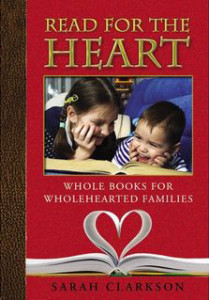“The old has passed away and, behold, He has made all things new.”
January is upon us and offers us the gift of a brand new year, a fresh start, a chance to begin again. Rather than fill us with hope and promise, however, I’m afraid sometimes we actually feel disheartened at the thought of a new year. Though change appeals to us and the planning energizes us, we recall all too well our past failures to persevere, or follow through, or even begin new resolves. We want all things to be new, but the efforts required to implement our great ideas too often sputter and die out as soon as we kindle them.
As I turned to the first page in my Bible this morning, I paused to meditate on those first three words, “In the beginning…” and mused upon all the new “beginnings” God has offered to me, time after time. Our Creator made a “beginning,” our Heavenly Father began a story, has written us into His story, and each day of every year is a new page in the next chapter of the story we are part of. Our own children are just beginning life’s story, and we parents have the indescribable joy of introducing and immersing them in this grand story God is unfolding. The privilege and responsibility is as critical as making sure they are clothed, fed, and educated. Thus, I appeal to you to allow stories to take a more prominent place in your own life and the life of your family in this brand new year. I wish I could wave a wand and make it simpler, or open a wardrobe door and usher you into a whole new world as quickly and easily as Lucy entered Narnia one day, but I possess no such powers. This practice of reading together will take deliberate decision and effort on your part.
I have written at length on many of the ideas below in the past, but pray the following sweetened and condensed list will stir, provoke, goad, or propel you into new beginnings now, at least as far as considering how to deepen and widen your family’s reading practice is concerned – wherever you find yourself on the journey.
Firstly, do you, like me, find knowing the why of something helps immensely in embracing change? The reason we need stories, then –to hear them, to tell them, and to read them– is because “in the beginning,” God “said.” He began the story of the world and our place in it by speaking. We are made to be people of the word. Throughout the Bible we repeatedly read, “it is written.” In the New Testament again we read, “In the beginning was the Word.” Jesus is that spoken Word made flesh and blood. How did He teach us with words? – through stories of course, “without a parable He did not teach.” We learn through stories. We need them – as a baby needs milk for pure survival, to bring joy to life, to add zest to every day monotony and routine, to ferment our hearts with goodness, fill our minds with ideas to ponder, inspire our bodies to new actions. We were made for stories and stories are made for us.
The reason I have to even point these things out, in company with many, many other book-driven, book-loving people who are also striving to persuade others of the necessity of reading, is that there are real forces in our culture subtly deflecting us from this course. I am not saying that not reading is the root of all evil, but it certainly is one of the paths that leads us away from our Creator, from knowing our purpose, from experiencing the love and joy we could find in one another. The fact is, that although we are made for stories and are people who cannot survive without language, reading itself is not a habit we are born with. It’s something that requires cultivation and work to accomplish. The art of reading must be learned, takes continual tending, and can be lost through neglect. It is an art in danger of extinction today, despite the ubiquity of books. I resist the temptation to dwell on frightening statistics, such as that less than one-third of college graduates can functionally read, or that less than ten percent of individuals ever read anything at all, but will spare you that depressing list.
Instead, here are ten statements to contemplate. Try them on for size. I could elaborate on each at length, and plan to develop many of them further in the future, but for now, just consider:
1. To be a reader, you have to read.
2. To raise children who are readers requires a home that is full of stories – books and books full of them.
3. Children can be taught to read functionally, but will not automatically embrace reading for its own sake.
4. Children who love to read have been read to profusely.
5. Children learn to love to read by seeing their parents read frequently.
6. Reading takes time, something contemporary families sorely lack due to over-involvement in out-of-the-home activities.
7. Continuing and mounting evidence shows that constant preoccupation with and use of electronics is directly related to lack of interest and ability to read.
8. We do not recognize that reading is a skill that must be honed and increased to perfect.
9. Nine out of ten books published are not worth reading.
10. Children respond far more positively to fathers reading aloud to them than they do to mothers.
Perhaps as you ponder this list, you recognize some of the deterrents to reading in your own home and some possible remedies you could employ. Lest this list discourage you, here are a few suggestions toward beginning a new habit or changing or improving established ones:
1. Read Lit, by Tony Reinke, who very simply lays out a plan for moving from being a non-reader or limited reader, to becoming an avid and wide reader.
2. For excellent recommendations of books to begin reading to your children, peruse Sarah Clarkson’s Read for the Heart.
3. Don’t worry about finding the perfect book, or a different book for every aged child in your family; most classic children’s books please family members of every age – just one of the reasons they are well-loved.
4. If one book doesn’t whet your appetite, don’t give up; choose another of a different author, style, time period, or genre…and then another and another and another.
5. Do not be dissuaded by the grumbling and complaining of your children (if it happens), just regularly and matter-of-factly continue to gather the family and turn the pages. Their tolerance will increase and your ability to read well will also improve.
I know of no other single activity that draws a family together tighter, promotes more family unity, or strengthens and nourishes a family than reading together. So if you are a reading family, begin a new book. If you have tried to incorporate more reading in your family life and failed, begin again. If you want to transform your family from a non-reading one to a reading one, just start. Each new book is a new beginning. “Once upon a time,” is not an old and worn out beginning, but an ever-new one. Don’t postpone or procrastinate beginning to read together. It’s a brand new year – a perfect time to begin a new chapter in your family’s story.
—– —– —–
Featured Image by Paul Boekell
- The Boy Who Harnessed the Wind - January 12, 2022
- The Value of Happily Ever After - November 1, 2021
- For the Adventurous Among Us - May 19, 2021

Leave a Reply